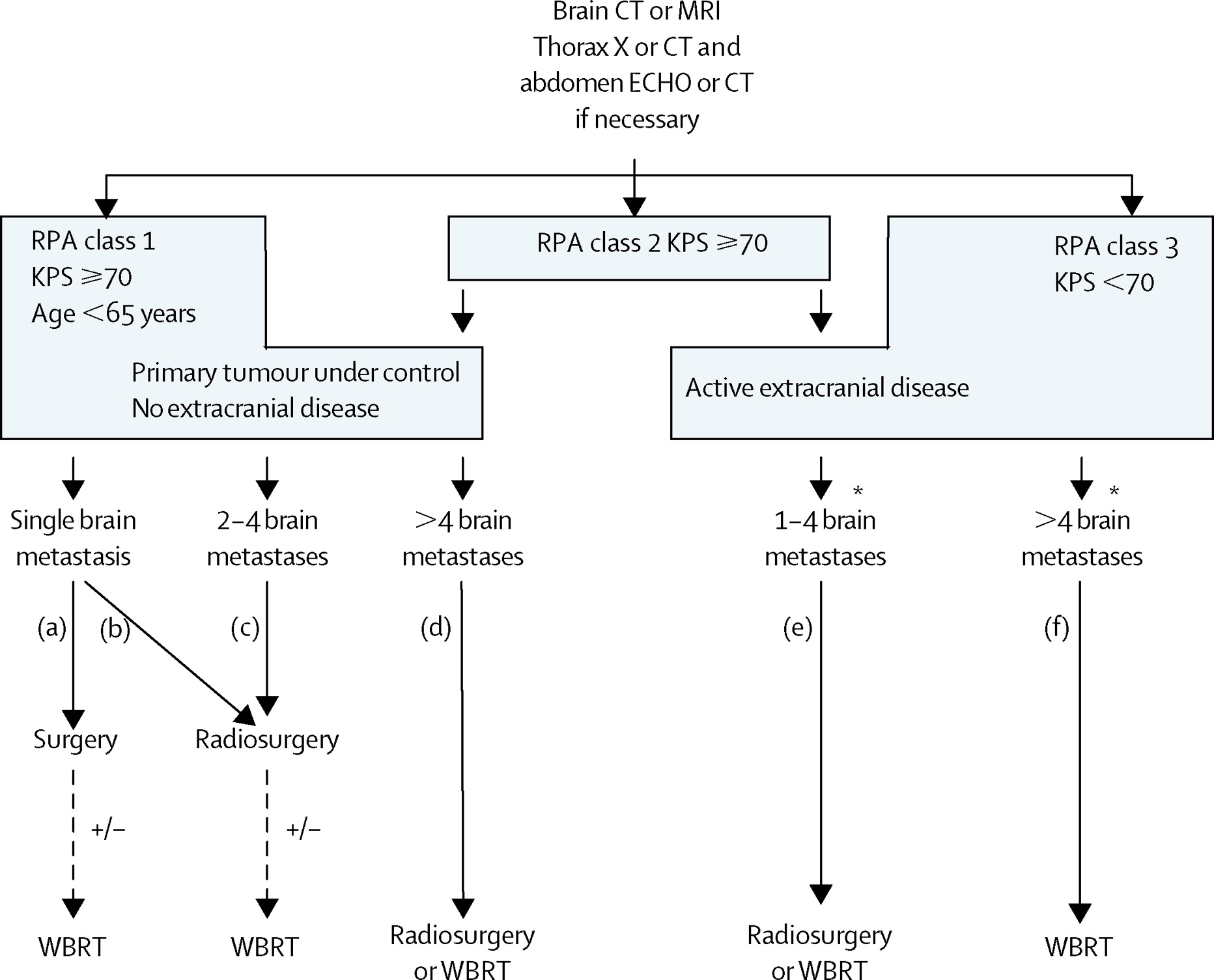Recursive partitioning analysis class
The Radiation Therapy Oncology Group, developed the recursive partitioning analysis (RPA) class, a statistical method of classifying patients with brain metastases, that includes KPS score, age, and the status and extent of extracranial disease.
Three prognostic classes.
Recursive partitioning analysis class 1
RPA class 2
(65 years or more, KPS score of 70 or higher, uncontrolled systemic disease, and other systemic metastases).
RPA class 3
Are those with KPS of less than 70; these patients have the poorest prognosis and are usually not chosen for surgery. Patients with tumors that are ≤ 3 cm in maximum diameter are likely to be treated with resection, whereas those who have small deeply located lesions (≤ 1 to 2 cm) tend to be treated with SRS. The current trend is to offer surgical resection only in cases when there is reasonable control of the systemic cancer, and patients are expected to survive for more than 3-4 months.
Promising results from new approaches such as radiosurgery or stereotactic surgery of brain metastases have recently been reported. Are these results due to the therapy alone or can the results be attributed in part to patient selection? An analysis of tumor/patient characteristics and treatment variables in previous Radiation Therapy Oncology Group (RTOG) brain metastases studies was considered necessary to fully evaluate the benefit of these new interventions.
The database included 1200 patients from three consecutive RTOG trials conducted between 1979 and 1993, which tested several different dose fractionation schemes and radiation sensitizers. Using recursive partitioning analysis (RPA), a statistical methodology which creates a regression tree according to prognostic significance, eighteen pretreatment characteristics and three treatment-related variables were analyzed. RESULTS: According to the RPA tree the best survival (median: 7.1 months) was observed in patients < 65 years of age with a Karnofsky Performance Status (KPS) of at least 70, and a controlled primary tumor with the brain the only site of metastases. The worst survival (median: 2.3 months) was seen in patients with a KPS less than 70. All other patients had relatively minor differences in observed survival, with a median of 4.2 months.
Based on this analysis, we suggest the following three classes: Class 1: patients with KPS > or = 70, < 65 years of age with controlled primary and no extracranial metastases; Class 3: KPS < 70; Class 2- all others. Using these classes or stages, new treatment techniques can be tested on homogeneous patient groups 1).
